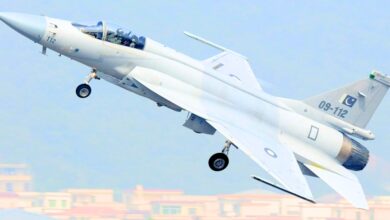
“India’s Challenge with Bangladesh: Navigating Relations with Sheikh Hasina”
India’s Challenge with Bangladesh It has been almost a month since former Bangladeshi Prime Minister Sheikh Hasina made a hurried landing at a military base near Delhi after a tumultuous exit from her homeland. On August 5, Hasina was ousted from power following weeks of escalating student protests that led to widespread, deadly unrest. Initially expected to remain in India briefly, Hasina’s attempts to secure asylum in the UK, the US, and the UAE have so far proven unsuccessful.

Her ongoing stay in India presents a challenge for Delhi as it seeks to build a strong relationship with Bangladesh’s new interim government. Bangladesh holds significant strategic importance for India, particularly concerning border security in the northeastern states. The two nations share a porous 4,096km (2,545 miles) border, facilitating easy movement for insurgent groups from India’s northeast into Bangladesh.
During Hasina’s tenure since 2009, her Awami League government took strong measures against ethnic militant groups and resolved several border disputes with India. Trade and connectivity between the two countries thrived, with India gaining crucial access through Bangladesh for goods transportation to its northeastern states. India also extended over $7 billion (£5.3 billion) in credit to Bangladesh for infrastructure and development projects.
The abrupt departure of Hasina means Delhi must work diligently to preserve these gains. Pinak Ranjan Chakravarty, a former Indian High Commissioner in Dhaka, views the situation as a setback but insists that India will have to engage with the interim government in Dhaka, acknowledging that internal political dynamics are beyond its control.
The Indian government has promptly reached out to Dhaka’s interim administration, with Prime Minister Narendra Modi speaking with interim leader Muhammad Yunus. However, it will take time for Delhi to address the discontent in Bangladesh over its past support for Hasina and her party. Many Bangladeshis resent India’s endorsement of Hasina’s controversial elections, marred by allegations of vote rigging.
The fall of Hasina has also impacted India’s “neighborhood first” policy, which has already faced challenges in the Maldives and Nepal. Analysts warn that India cannot afford to lose influence in Bangladesh, especially as China actively seeks to expand its regional footprint. Last year, Mohamed Muizzu’s anti-India stance helped him win the presidency in the Maldives.
Debapriya Bhattacharya, a senior economist from Dhaka’s Centre for Policy Dialogue, calls for introspection in India’s regional policy. He argues that India needs to consider the perspectives of its neighbors more thoroughly.
In Bangladesh, India’s focus on the Awami League has been criticized. Abdul Moyeen Khan, a senior BNP leader, describes India’s neglect of opposition parties as a strategic error. Should free and fair elections occur soon, the BNP, led by Khaleda Zia, who has recently been released from jail, is confident of a victory. This could present a diplomatic challenge for Delhi, given its strained relationship with Zia and the BNP’s past.
Additionally, India’s involvement in issues like water resource management has fueled tensions. Recent floods in Bangladesh, triggered by heavy rains in India’s Tripura state, led to accusations of deliberate water release, which India has denied.
China’s growing influence in Bangladesh, particularly following Mohamed Muizzu’s state visit there, adds another layer of complexity. India hopes that its trade ties with Bangladesh will buy it time to reassess its diplomatic strategy.
As Delhi navigates this situation, it must handle Hasina’s presence carefully, especially if the new government requests her extradition. While Hasina’s stay in India remains a sensitive issue, Delhi hopes she will make a decision on her future that does not compel India to act against its interests.
“It’s crucial for India to manage Hasina’s presence diplomatically,” warns Bhattacharya. “How she interacts with the interim government from India will be closely scrutinized by Bangladeshis, and any perceived interference could be seen as hostile.”






